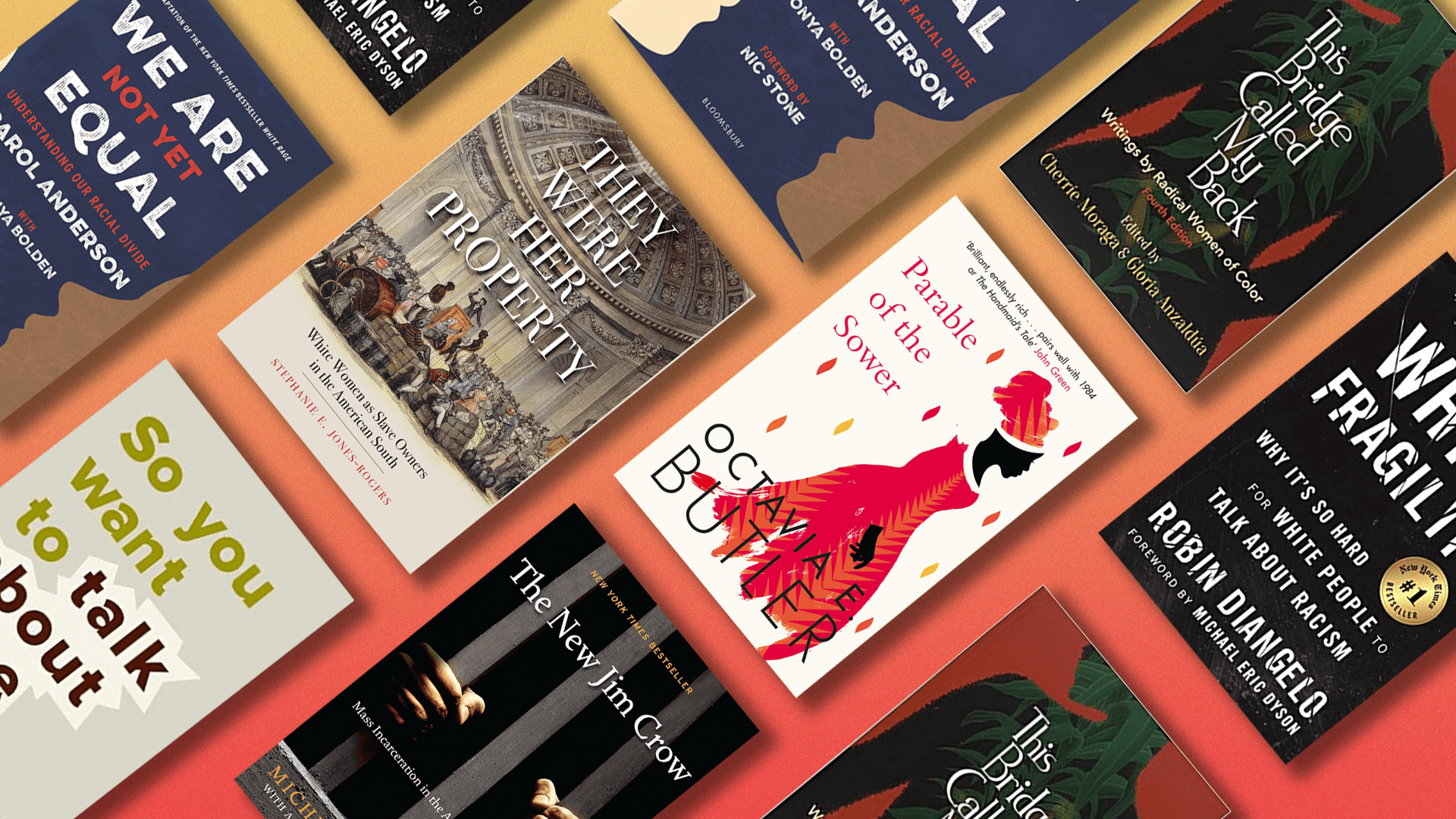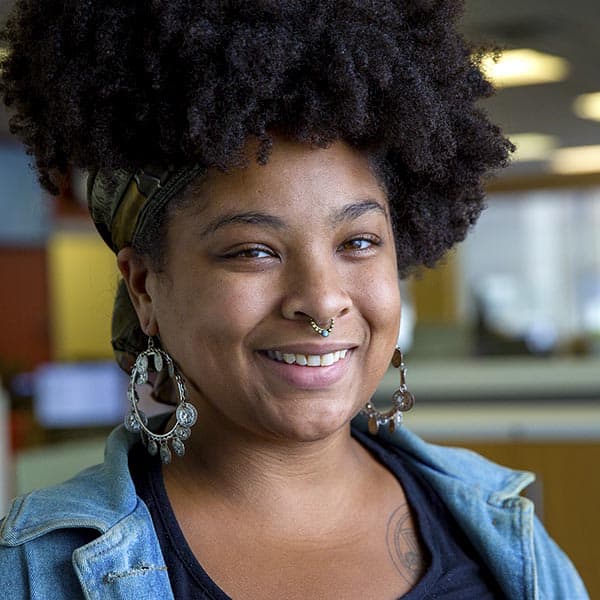Advertisement
A Reading List On Race For Allies Who Want To Do Better

There have been a lot of reading lists floating around the internet that provide titles on how to learn and talk about racism and current racial tensions in America. This list certainly includes some of those titles, including personal favorites of mine like "So You Want To Talk About Race" by Ijeoma Oluo and "How To Be An Antiracist" by Ibram X. Kendi. But an important part of learning about racism is realizing that no reading list can do the work for you. Learning and excommunicating your internalized racism is a lifelong process that requires intense self-study and determination. I want to be clear: this list is really for allies looking to be and do better.
This reading list (hopefully) provides suggestions that'll help you develop a more comprehensive view of race. These books range categorically from memoirs, "race readers" (as Lauren Jackson calls them in this piece for Vulture) to history books. This list also includes works of fiction by Black authors. Why? Because part of learning about race means reading books by Black authors that aren't meant to educate. Reading literature penned by authors of color is something you should be doing year-round.
You'll be able to find many of these books at Frugal Bookstore, Boston's only Black-owned bookstore. Visit their website or give them a call to order and arrange for curbside pick-up.
'The New Jim Crow: Mass Incarceration in The Age of Colorblindness '
Michelle Alexander
At this point, Alexander's "The New Jim Crow" has pretty much become required reading for those wanting to learn more about the legacy of mass incarceration and slavery. Alexander is supremely succinct and precise in how she lays out and exposes how our systems of "justice" have been corrupted, right from the start. From Jim Crow to chain gangs to the war on drugs, "The New Jim Crow" is fundamental reading for anyone looking to learn about America's carceral systems and its racist foundations.
'Parable of the Sower'
Octavia E. Butler
Some of you may be wondering why a science fiction novel would be on this list. It's because fiction can be a much more adept storyteller than reality. Butler's seminal "Parable of the Sower" is strangely prophetic in a time of pandemics, religious and political extremism and climate change. In Butler's book, the world has ceded to chaos, fractured by environmental racism and capitalism. But the main character Lauren holds onto a radical hope for change that will shape a different future. If you want to learn about our world while escaping to another, this is the perfect book for you.
'So You Want To Talk About Race'
Ijeoma Oluo
I was thrilled to hear that Ijeoma Oluo's book was back on The New York Times Best Sellers list two years after its publishing. Clearly, people are interested in talking about race right now and "So You Want To Talk About Race" is precisely what people need on their reading list. Oluo's writing is sharp and informative but easy to digest, which is good for people who are just now entering into these hard conversations with family and friends. For white people looking to learn more about racism, this book isn't going to coddle you. But what it will do is push you to ask questions and give you the language to continue this dialogue with others.
'This Bridge Called My Back'
Writings by Radical Feminists of Color
This multicultural anthology penned by feminists of color is a must-have for anyone looking to understand the intricacies of race, sexuality, gender, class and culture. If you call yourself a feminist, then you most definitely need this title on your bookshelf. Comprised of essays, poems, interviews and cultural criticism, "This Bridge Called My Back" gives an unflinching look into the failures of the feminist movement and how women of color have been organizing across borders and languages to support, protect and show up for one another.
'Why Are All the Black Kids Sitting Together in the Cafeteria?: And Other Conversations about Race'
Beverly Daniel Tatum
It's a trend that many educators may notice in their classrooms, cafeterias and other academic spaces. Why do students of color tend to group or sit together? While students at the elementary level tend to have friendships that span across races, this happens less and less as children enter middle and high school. The answer to this phenomenon isn't a simple one. Tatum takes a deep dive into how racial disparities and differences manifest in our schools and how they influence the way children relate to each other. Things like redlining, school zoning and racism in classrooms are places to start when looking at race in our school systems.
'We Are Not Yet Equal: Understanding Our Racial Divide'
Carol Anderson and Tonya Bolden
This is a paired down and more suitable young adult version of Carol Anderson's book "White Rage." "We Are Not Yet Equal" breaks down American history and exposes how, at each step towards progress, there were political and legal movements to push back against racial equality. From the Voting Rights Act to the landmark Supreme Court case Brown v. Board of Education, history is never as clear cut as it's made out to be in the history books. "We Are Not Yet Equal" is perfect for an inquisitive teen looking to question what they're being taught in school.
'White Fragility'
Robin DiAngelo
This is another book that flies back up on the bestsellers lists when political and racial unrest erupts. DiAngelo, a white educator and writer, has provided a timely and incredibly pertinent exploration and guide into "white fragility." In an interview with NPR, DiAngelo said of her work, "Nice, white people who really aren't doing anything other than being nice people are racist. We are complicit with that system. There is no neutral place." Racist systems aren't something that people necessarily opt into but they are something that you are complicit in if you aren't actively seeking to dismantle them. This book may help you figure out how.
'How To Be An Antiracist'
Ibram X. Kendi
There's a misconception that simply being "not racist" is enough. But the antithesis of being racist isn't being not racist — it's taking an active role in unlearning your own internalized prejudices and becoming anti-racist. Kendi's book, part memoir and part incisive cultural critique, provides a blueprint for being more than "not racist" and for taking action to help dismantle the systems that allow racism to thrive and grow.
'God's Bits of Wood'
Ousmane Sembène
Part of understanding race in America means understanding that anti-Blackness and colonialism are global issues. This book by Senegalese author Ousmane Sembène tells the tale of the 1940s strike organized by railroad workers in Senegal and Mali. Sembène, who took part in the strikes himself, was extremely critical of colonialism and wrote with a particularly critical eye on France, which colonized Senegal in the 1600s.
'They Were Her Property: White Women as Slave Owners in the American South'
Stephanie E. Jones-Rogers
When we think of slave owners, we often conjure images of white men, many of whom were famous and well known, like Thomas Jefferson. What we're missing is a large part of the actual story. Jones-Rogers' "They Were Her Property" uses history to ground and contextualize the role white women, in particular, have played in slavery. A variety of sources show that slave-owning women were players in the South's economy, directly benefiting and engaging with the slave market. "They Were Her Property" not only gives us a look into the past but also examines the present and how feminism has often neglected to address gender issues along racial lines.
Notable Mentions:
- "Kindred" by Octavia E. Butler
- "People Before Highways: Boston, Activists, Urban Planners, and a New Movement for City Making" by Dr. Karilyn Crockett
- "Women, Race and Class" and "Are Prisons Obsolete?" by Angela Y. Davis
- "Killing the Black Body: Race, Reproduction, and the Meaning of Liberty" by Dorothy Roberts
- "Black Skin, White Masks" by Frantz Fanon
- "A Small Place" by Jamaica Kincaid
